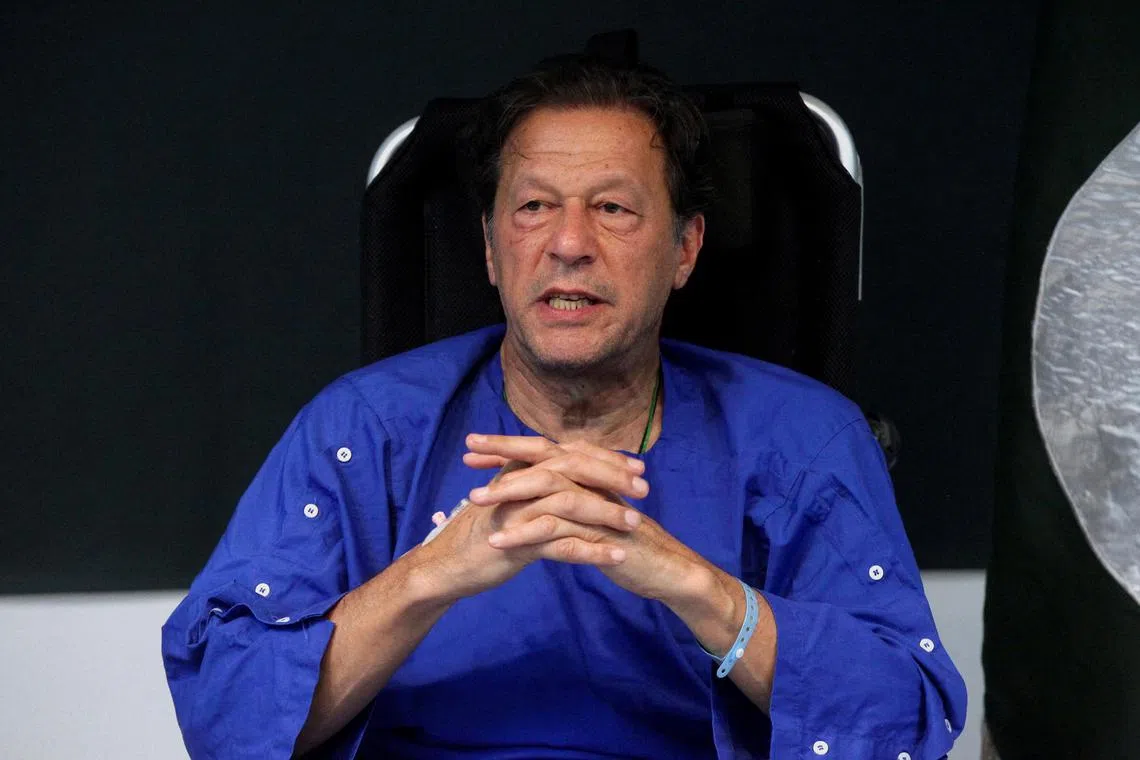Pakistan's Imran Khan says his party to dissolve two local assemblies on Dec 23
Sign up now: Get insights on Asia's fast-moving developments

Mr Imran Khan’s party controls two of the country’s four provincial assemblies, including Punjab, which makes up nearly half of Pakistan's population.
PHOTO: REUTERS
LAHORE, Pakistan - Former Pakistani prime minister Imran Khan announced last Saturday that his party would dissolve two provincial assemblies this week, earlier than scheduled, in an attempt to build pressure on the federal government to hold an early general election.
Mr Khan has campaigned for snap polls since being ousted from power in a parliamentary vote in April, which has heightened political uncertainty in the South Asian nation even as it struggles to stave off financial default.
Mr Khan’s party controls two of the country’s four provincial assemblies.
The other two are controlled by his political opponents, who also control the federal government under Prime Minister Shehbaz Sharif and who have said they will not hold national and local polls before they are due in November 2023.
“(On Friday), we will dissolve the Punjab and Khyber-Pakhtunkhwa assemblies,” Mr Khan told a gathering of his supporters in the eastern city of Lahore.
Punjab, controlled by Mr Khan’s Pakistan Tehreek-e-Insaf (PTI) party, is the country’s most populous province and makes up nearly half of the country’s population of 220 million.
The dissolutions could create a fresh constitutional crisis in the country.
Historically, polls for the federal and provincial governments are held at the same time in a general election every five years.
If the two provincial assemblies are dissolved earlier, separate polls would have to be held for them within 90 days, which could throw up legal problems.
Mr Khan, who was injured in an apparent assassination bid in November, said he was “sacrificing” his two provincial governments for the sake of the country’s future.
He added that elections in the two provinces would mean holding polls in 66 per cent of the country, and so the government might as well hold a general election.
REUTERS


